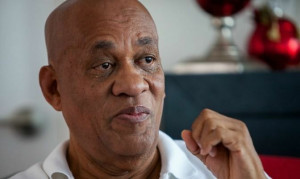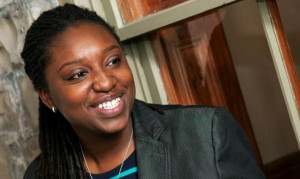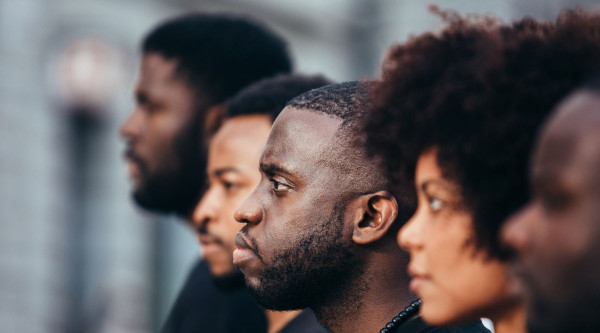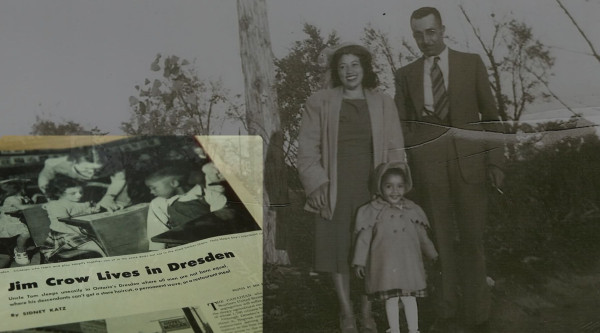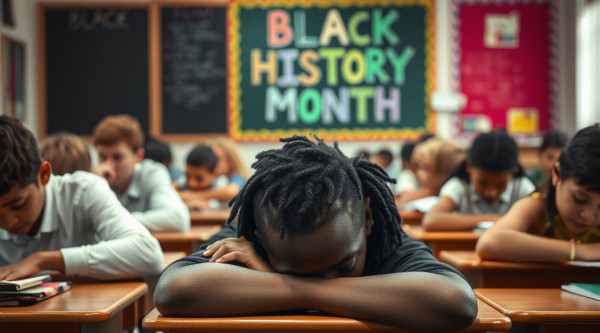Jean Augustine is Ontario's current Fairness Commissioner and was the first black woman to be elected into Parliament. While Augustine was in Parliament she put forward a motion to have February officially recognized as Black History Month by the House of Commons. Throughout her career, she has made efforts to improve equality and diversity in different areas of Canadian society for women and people of colour. Through the efforts of Augustine and others, the 2004 Canadian Journey Series of banknotes featured the women of The Famous Five on the $50 bill. Augustine has been a member of many organizations and boards including the Board of Governors of York University, the Congress of Black Women of Canada and the Board of Trustees for The Hospital for Sick Children.
How significant was it to you to be named the first black female into the House of Commons?
I consider it important in the scheme of things, we were in this country since the 1600s, so me being the first black woman elected into the House of Commons I didn't see it as a personal victory, it's a victory for all of us.
What changes did you hope to see after your appointment?
I hoped to see the country leaning towards diversity and inclusion. To see more people like myself find themselves in places where decisions are made. More specifically, I wanted to make sure that I conduct myself in such a way to leave a legacy behind. I wanted to ensure that I left a track record that leads to progress. There were three or four things I wanted to see happen for the entire community, one of them being Black History Month. Another one of them was the recognition of women's place in the political arena. The third was I wanted to address in Parliament some of the social issues that were facing our community.
With the current state of politics at all levels, how do you feel about the representation of women and people of colour?
I think we're not there yet. I think we've got a lot of educating to do. I think we have to realize we have to participate in the political arena because that's where decisions are made. It's important to support each other because I find often times what's missing is the support. We have to realize that support comes in different ways. We have to get out and walk the block with people who are running. We have to make sure we support the people running with financial assistance and the support to promote themselves. And thirdly we have to get out there and talk and be engaged with our friends to provide that support.
Throughout your career you've been recognized for your work with women and people of colour as well as single-mothers and immigrants, why did you make these groups your priority?
Well when you look at me and you see my own history you can see why it is a focus. I can't ignore the fact that I am a black woman. I can't ignore the fact I know what poverty is. I know what goes on with newcomers and people who come into tough socio-economic times. And I'm very aware that you can't do everything alone or within your own group, you have to get out there and participate in the general public. People of all different races, nationalities and gender. For me, that means connecting with everybody.
You mentioned that it is important for groups of people to work together and form a sense of community, in Etobicoke there is a community centre named after you (Jean Augustine Centre for Young Women's Empowerment). At the centre, they have programs which aim to improve one’s networking skills, how to build self-confidence and other programs. How important is it to have a place to learn these skills?
I think it's important that we see these learning skills, building self-esteem and self-assurance as an important part of the education system. It is in school often times that we learn to feel safe and learn various social skills. If we have places like the centre that can foster that growth, we will see more young people find their feet within the society.
Can you tell us a bit more about the centre’s Yoga studio?
If you read about yoga, it's all about the ability to look inwards and bring out what's inside to find the peace, contentment and quiet from within and use it to stabilize. We live in a world that's rush, rush, rush, hurry, hurry, hurry and we can get very down on ourselves and the situation we're in. If you can breathe, close your eyes and visualize if you're able to relax you get the connection between mind and body.
For young people and in fact people of all ages, coming to peace with things and knowing themselves and their place in the world can be difficult, what do you think some of the biggest obstacles are?
The big obstacle for young people lies in the fact that the opportunities and the mentors are not there like they should be. The guidance they need at certain periods of their life is missing. And often times it’s the lack of knowing how to grasp at opportunities when they present themselves. It's about learning and being resilient and not letting failure knock you down in such a way where you can't get up.
When you were young and had first came to Canada did you experience anything like that?
When I came to Canada I came from a family and a school system that were both very empowering. I came with a sense of self and a few goals; this is what I want to do, this is what I will do. That's not always the case for newcomers. I came with my goals and a sense of self intact.
You said that you had family and school system to support you and help you develop that, how do you think we can ingrain that type of thinking into our own school system so that others can have the same feeling of support and community?
I think we have to work diligently with educators and people who create curriculums so that the curriculum reflects us. We also have to have parents involved with the system, attending parent-teacher nights. We have to remind children that education is important because it is the basis of whatever they'll do in the future.
Earlier you mentioned that social issues was something you cared about. How important is education when it comes to starting conversations about some of these social issues?
We have to be open to the things that face us on a daily basis. Knowing your community and participating in it, brings about an awareness about the challenges facing a community. That learning and knowing about what is going on in a community and volunteering makes lives better for those who need help. Making lives better for other people often makes life better for yourself.
At U of T Scarborough, students have lobbied the Student's Union to have an Equity and/or a Women's Studies course made part of the breadth requirements, meaning you need them in order to graduate, what do you think about that idea?
This is why it's important to be involved with the curriculum. I think it’s important for universities and schools to address the needs of their students. So any program or any school should look at themselves and see who's in their classrooms? Who are the staff? We should see some reflection of the staff in the student body so those issues that affect the students can be responded to by the faculty and staff.
You were a teacher before you came to Canada and you spent some time as a principal here, did any of your experiences influence the mentality you had about seeing a reflection of the student body in the staff?
That's exactly it. My classrooms were always a place where students could learn about their heritage. I think I was into multiculturalism before it was recognized as the nature of Canadian society. We spent a long time talking about the world and talking about people coming from all over the world to Canada and how we have to live together and work together. This is why I got the Black History motion consent in the Parliament of Canada. I was teaching black history and the history of black Canadians way before I went into Parliament. So as an educator I thought it was important for young people to know about themselves and their own culture as well as their classmate’s culture. Those things speak to inclusiveness, diversity and it also teaches them to respect one another and each other's culture.
What do you think Canada's reaction to the Mike Brown and Eric Garner tragedies says about the ethics of our community?
Well I think our reaction should help us realize that we can't say we are better than, or more progressive than the Americans. I think some of the issues that face the States face us. But with the States it's a matter of scale. Some of those issues around employment, policing, and housing and opportunity for promotion are issues that we constantly have to work at.
And with issues that we constantly have to work at, how do we work on them as a community?
I think just knowing the issues and identifying what those issues are is the first step. One of the things I realized is that we don't have a Pan Canadian organization. We have a lot of scattered smaller organizations, some of them too small to generate a kind of movement like we see in the States because we don’t have the critical mass. For example, the employment issue. We have many young people walking around with resumes unable to find work. Part of the problem is we don't have enough African-Canadians in positions to hire all kinds of people. We don't have enough Canadian mentors in high places who can take that resume and make sure it gets to the right places. We don't seem to be able to have any consistent strategy, so we lose momentum.
Jean says she is still far from hanging up her political gloves and that there are still goals she would like to achieve. She says she would like to be remembered as a person who was hard working and always willing to help. In Jean's honour, there is a Toronto District School Board leadership academy, a City of Toronto Park, a scholarship fund and a community centre all named after her. Jean hopes that the things that bear her name will last as part of her legacy and evidence of the contributions of African-Canadians.
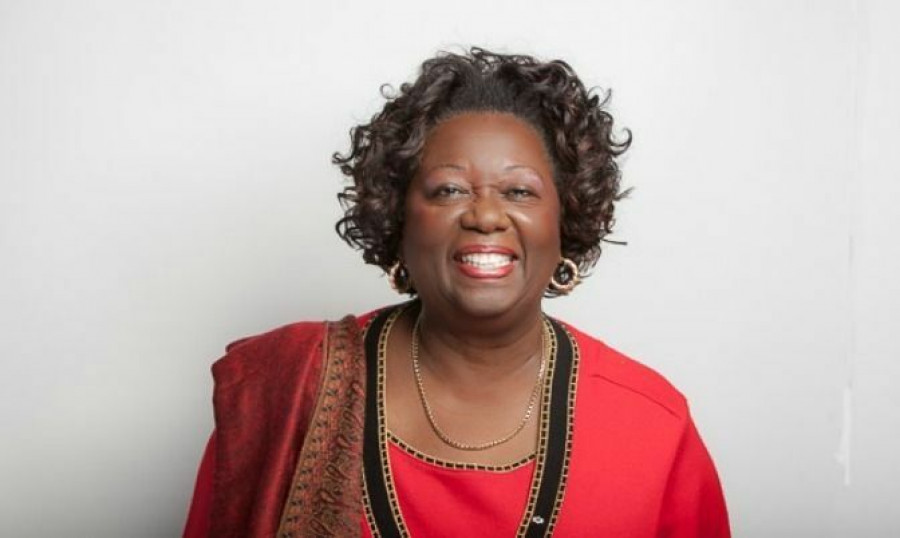
 By
By 

